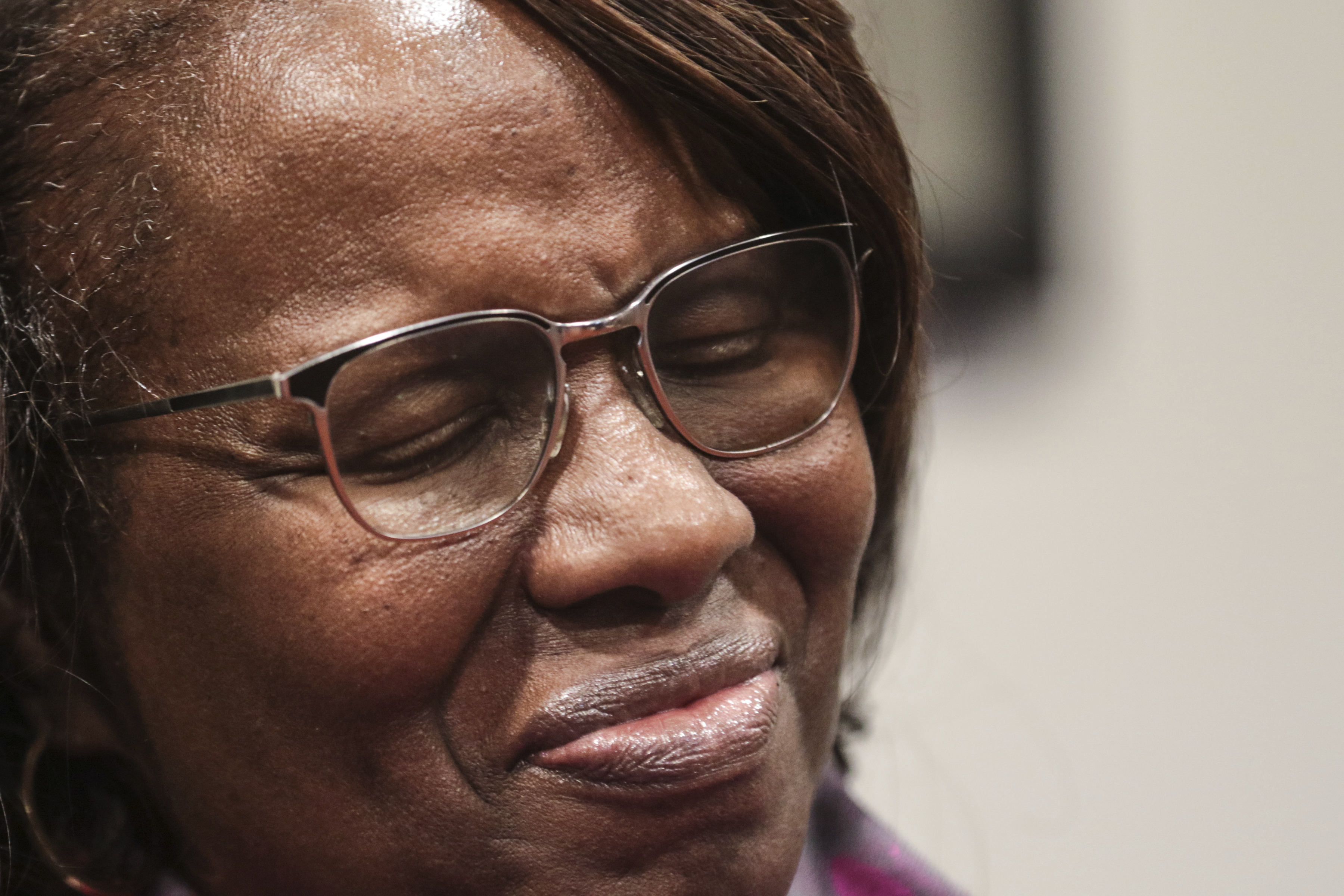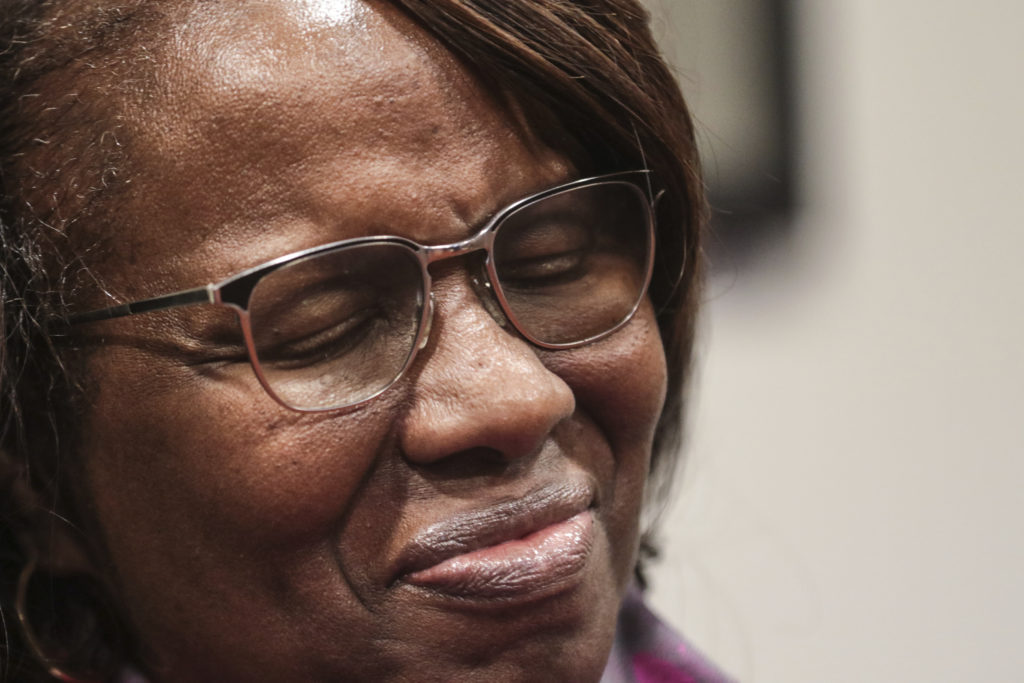
By Errin Haines Whack
Associated Press

The victims’ families spoke words of forgiveness in Charleston after nine black people were massacred in a historic church by Dylann Roof, a white man who harbored dreams of launching a race war. The relatives were held up as examples of grace amid horror, and the city stayed calm.
Now, Roof has been convicted in a federal trial, bringing relief tempered by uncertainty over whether he will get the death penalty for his crimes – and whether wanting to see Roof pay with his life is at odds with the call to forgive.
Roof’s guilty verdict came less than two weeks after a jury deadlocked in the case of Michael Slager, a white ex-police officer charged with fatally shooting Walter Scott, a black man, as Scott tried to flee an April 2015 traffic stop. The sentencing phase of his trial is scheduled for next month.
The proximity of the cases – tried in courthouses across the street from each other – left Charleston minister Kylon Middleton unsure about where justice actually dwells.
Middleton counted the slain pastor of Emanuel African Methodist Episcopal Church, Clementa Pinckney, as his closest friend. Middleton sat in the courtroom daily, from the start of jury selection until Roof’s verdict was rendered, mourning his friend and wrestling with forgiveness as he watched a trial with an outcome that felt especially uncertain.
“You can’t assume people are going to do the right thing,” said Middleton, pastor of Mount Zion African Methodist Episcopal Church. “Some people, based on race or bias … will never go against someone of the same race.”
After the Slager mistrial, nothing is a foregone conclusion – even with an abundance of evidence, said Herb Frazier, co-author of a book about the June 2015 Emanuel church shootings that left nine worshippers dead. They were shot by Roof after he was welcomed into their weekly Bible study.
“A lot of this is unsettling emotionally, and there seems to be no resolution to anything,” Frazier said.
Roof was convicted Thursday after more than a week of often emotional testimony that included survivors’ accounts of the killings. At his bond hearing last year, several relatives of Roof’s victims said they forgave him and asked for God’s grace on his soul. The gestures of compassion were praised as a remarkable response to overwhelming grief and tragedy, and held forth as a model for the country.
Felicia Sanders, whose son Tywanza was killed by Roof as he attempted to shield a church elder, has been forced to grapple personally with the question. She told Roof at his bond hearing last summer, “May God have mercy on you.”
One of two adult survivors of the shooting, Sanders was the first prosecution witness in Roof’s trial. During the trial Sanders called him “evil, evil, evil” and said he “should rot in hell.”
Middleton said the families’ impulse to forgive may have been more knee-jerk than genuine emotion resulting from a process of contemplation.
“I don’t think they had time to absorb the fact that their loved ones were heinously murdered,” Middleton said. “The country automatically expected us to be forgiving, causing the national perception of the wonderful people of Charleston.”
The Rev. Mark Tyler, pastor of Mother Bethel AME Church in Philadelphia, is still trying to process the Charleston shootings and the notion of forgiveness. After the Slager decision, Tyler was discouraged that “400 years later, we’re still in the same place, with many people feeling like black people don’t belong here.”
“Repeatedly, black people in America have shown the willingness to forgive, but too many refuse to meet us there,” Tyler said. “The rest of the country looked at that moment and said, ‘This is wonderful,’ thinking (blacks) have forgiven white people for all of the wrongs that have happened in America.”
Activist Bree Newsome – who made headlines last year when she scaled a flagpole at South Carolina’s capitol and pulled down the Confederate flag after the Emanuel shootings – placed the Slager case on a continuum of injustices against black people. Newsome said her Christian faith was moved by the families of the Emanuel shooting victims, but she doesn’t necessarily subscribe to the notion of forgiveness around black death.
“Part of our history … is this pattern of a lot of pressure always being placed on the black community to forgive, to move on, to make peace, when nothing has actually been resolved,” said Newsome, adding that her great uncle was lynched and her grandmother saw the Ku Klux Klan attack black people in Jim Crow South Carolina. “It’s deeply offensive. It’s never just about one incident. It’s about this long history of violence that black people have experienced.”
Slager is expected to be retried. Outside of the courtroom, Scott’s shooting had been seen by many in South Carolina and across the country as an open-and-shut case of guilt. The mistrial was the latest defeat for those pushing for police reforms after similar, recent incidents in cities like Ferguson, Baltimore, Cleveland and Cincinnati – leaving some wondering how high the bar for accountability is for officers who shoot unarmed black men. There have been few officer prosecutions or convictions in recent cases.
A University of South Carolina study released on the anniversary of the Emanuel shootings showed that 90 percent of blacks in the state believed charging Slager with murder was the right decision, and that more than 70 percent felt police are too quick to use deadly force. While the survey didn’t pose the question of forgiveness, co-author Monique Lyle pointed out that the majority of black South Carolinians polled did not feel Roof should be sentenced to death.
“It would be a mistake to think that forgiveness … is the same thing as not wanting justice,” Lyle said. “I think blacks in South Carolina do want to see justice being served. It’s possible to show forgiveness without feeling someone shouldn’t be held accountable.”




